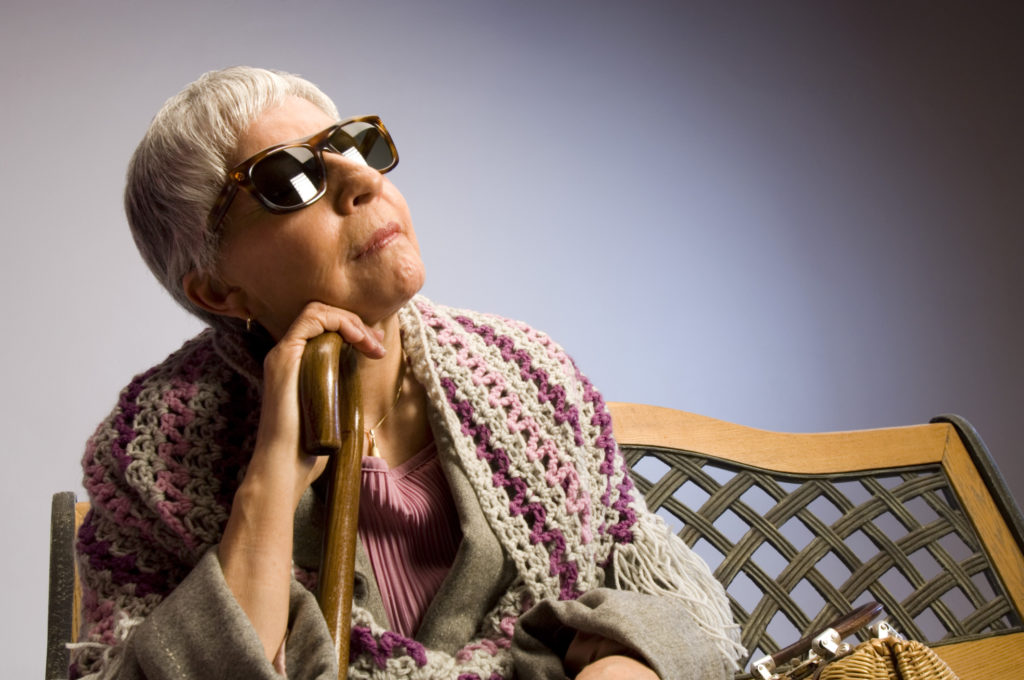
October of 2021 will be World Blindness Month, and that is a time when increased focus will be on visually impaired individuals, and how visual impairment impacts the world community in general. It isn’t hard to imagine what life is like for a blind person, in Hernando and elsewhere around the world – all you have to do is close your eyes for a minute and sit in the darkness, with no light reaching your eyes. Senior home care professionals must often care for visually impaired patients, and that always requires extra attention in order to keep them safe and unharmed, even in the security of their own homes. Here are some ways you can provide meaningful assistance to a loved one who has some kind of visual impairment.
Make the household safe
This is one of the biggest ways you can help your senior loved one who has some kind of visual impairment. It’s very important that the household is safe for your loved one to navigate, and that there aren’t all kinds of traps and pitfalls awaiting them as they move around the household. One of the most important areas in this regard is making sure that your home is fall-resistant because falls are one of the leading causes of bone fractures and major injuries.
Falls can be dangerous to any senior individual, but blind or visually impaired seniors are especially prone to dangerous falls. Make sure to remove any fall hazards, and if your loved one has some level of vision, try to install things around the house which have contrasting colors that are easy to pick out. Anything you can do to anticipate potential hazards around the home will be a big help to your visually impaired loved one.
Plan chores and external trips
There will always be a number of occasions where it’s necessary to leave the house with your loved one, and you will have to plan for these excursions ahead of time, so as to avoid any complications. Even simple things like keeping doctor appointments or going grocery shopping will require a little extra planning in order to make the activity safe and enjoyable for your loved one.
When it comes to doing household chores, this will depend on the level of visual impairment that your loved one has, because you don’t want them involved with any activities that will be unsafe for them. In some cases, you may need to supervise their household chore efforts, especially when there is an increased possibility of accidents occurring, or anything that might potentially harm them.
Take advantage of local resources
If you are the sole caregiver for a visually impaired loved one, it can be a tremendous responsibility, and it can require a great deal of your time and effort. This means there is a serious possibility of burnout, and you don’t want that to happen, because it will affect both you and your loved one when you’re unable to provide the necessary care.
Keep in mind that you don’t have to share this burden alone because there are a number of resources available in every community that can help visually impaired persons and their caregivers. Some of these organizations help visually impaired people find jobs, learn new life skills, or learn how to live independently.
Include them in social activities
It’s very easy for someone with visual impairment to become isolated, and to have feelings of isolation. As a caregiver or a loved one, this means you’ll need to take some extra time and effort to include your loved one in activities, so they don’t miss out on time with family and friends.
Nowadays, there are a number of tools that are available that can help with communication involving blind people, for instance, text-to-speech software on computers, and a whole slew of apps that can help individuals who have recently experienced vision loss. The main point of all this is to draw out your loved one, and prevent them from withdrawing from society because this will lead to all kinds of other negative developments, as well as lower quality of life.
Conveying information clearly
It’s usually a bit more difficult to convey information clearly to an elderly loved one who has some type of visual impairment, especially if that information has some level of complexity. Many people without visual impairment learn about things by reading about them, and they may re-read the information several times in order to get a good understanding of it.
This, of course, is not possible for someone with blindness, and they must rely on their hearing in order to gain an understanding of any issue being discussed. That means it’s extra important for you to take your time when conveying information to an elderly loved one, so you can be sure they’re understanding the information you’re passing on.
